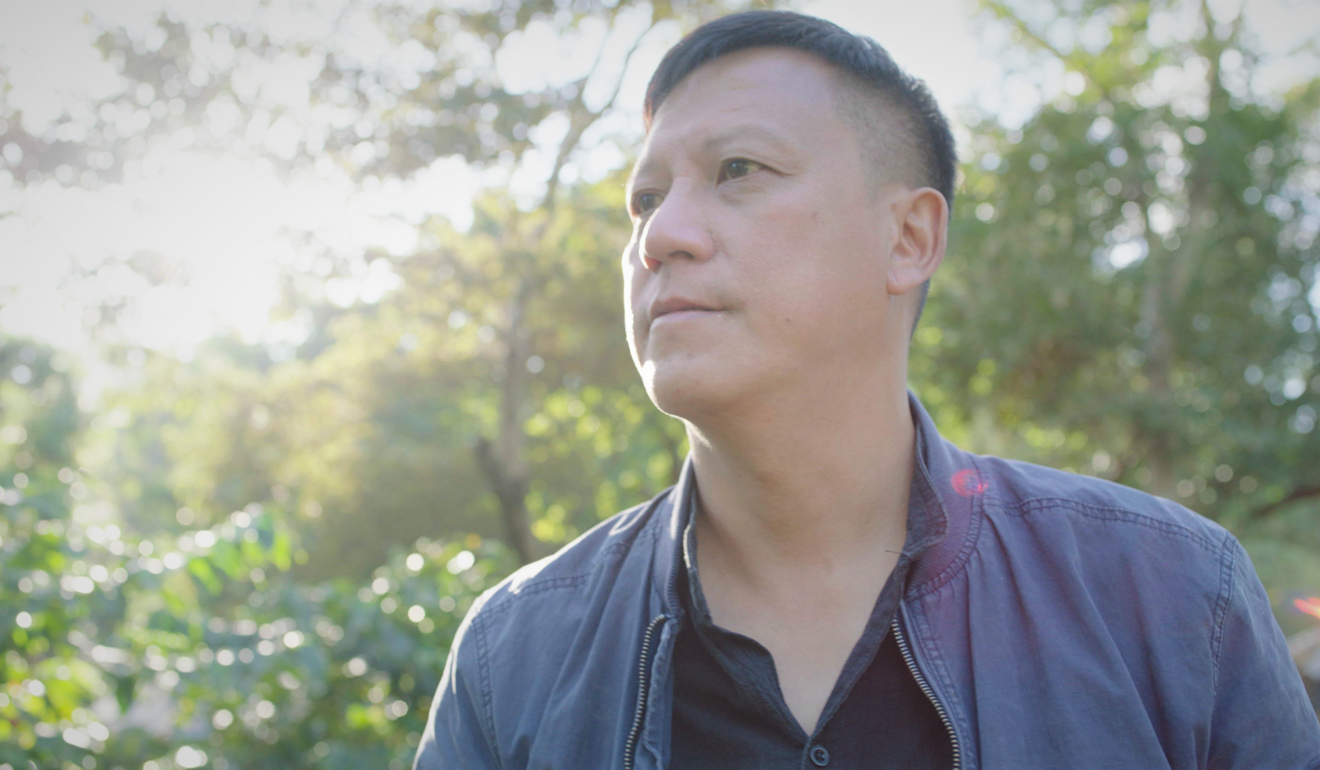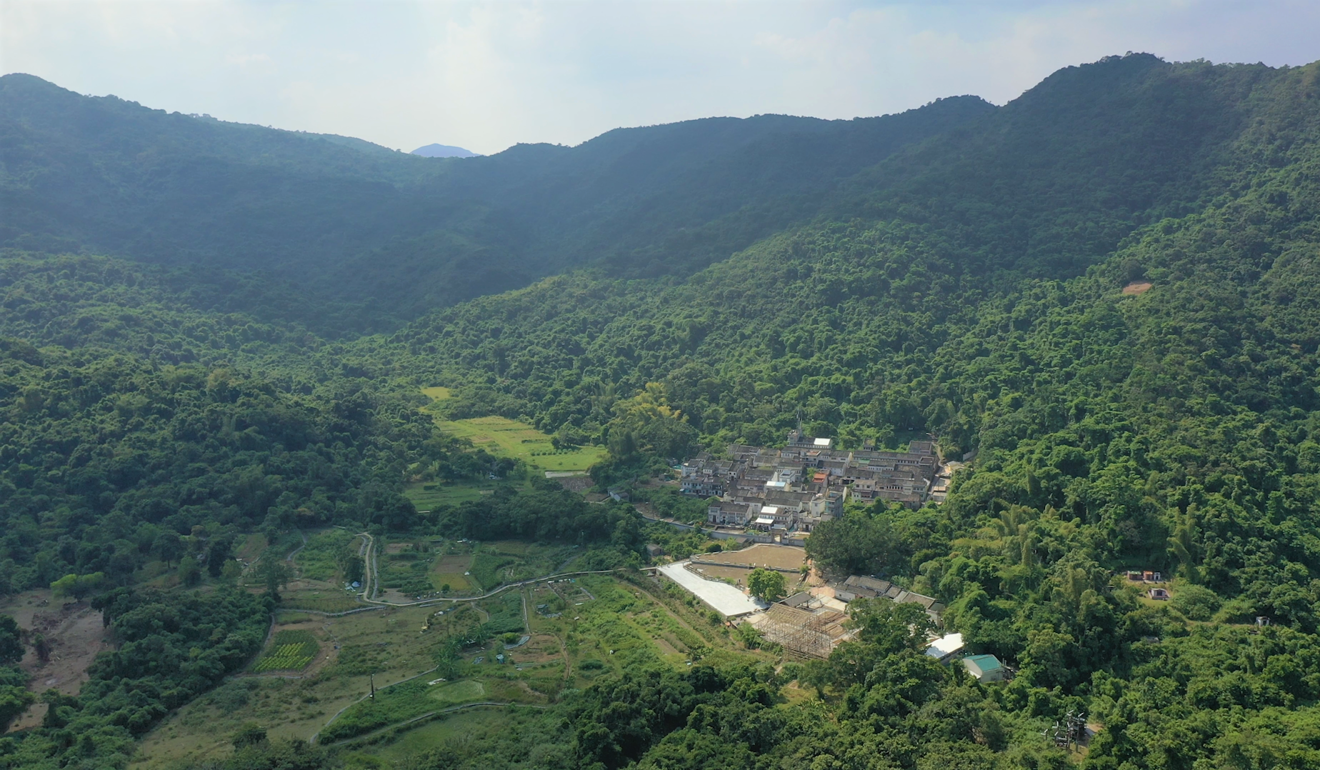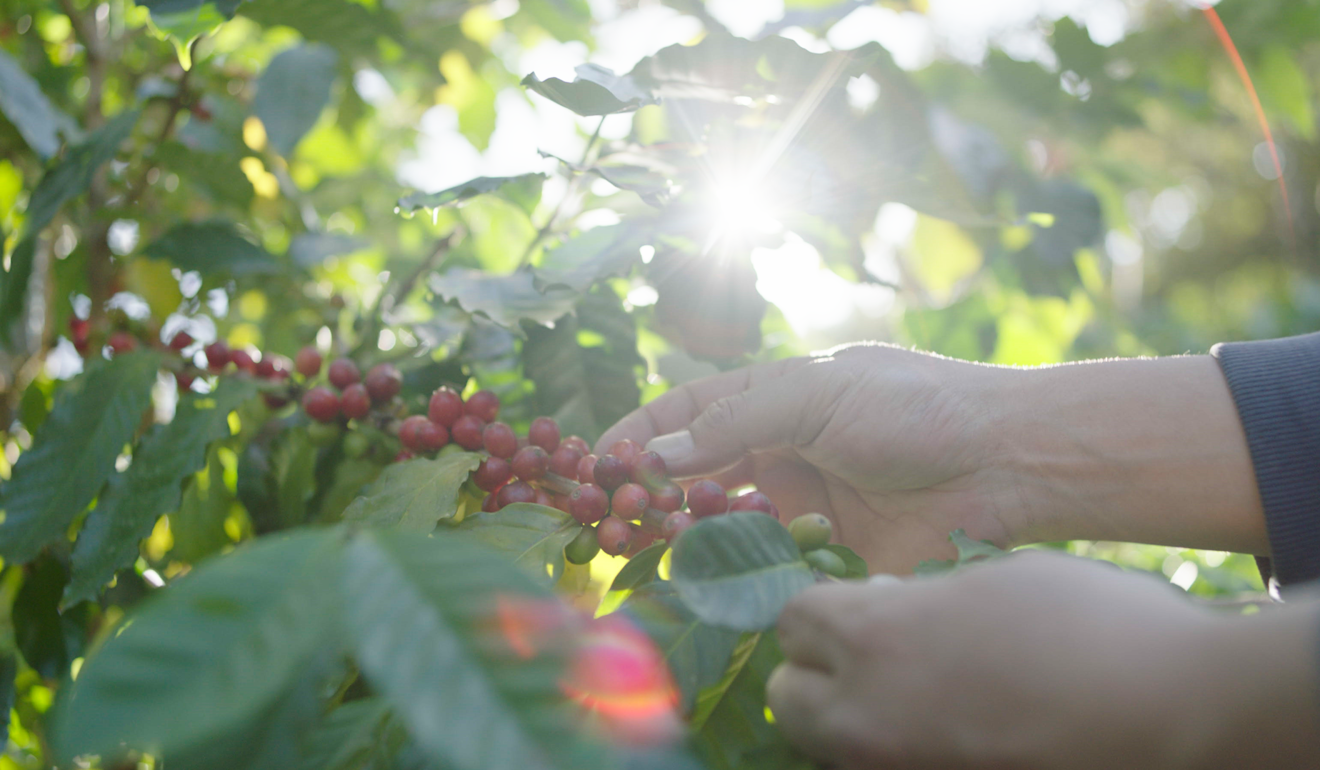How neglected Lai Chi Wo village became culturally vibrant, Unesco-award-winning farming settlement
- Farming and cultural traditions have returned to Hong Kong’s remote rural settlement in New Territories despite departure of many residents at start of 1960s
- Revival, including coffee grown as part of sustainable farming programme, sparked by nine-year HKU programme with funding from The Hongkong Bank Foundation founded by HSBC
[Sponsored article]
Mention the remote rural settlement of Lai Chi Wo today and images of its hillside farmland areas teeming with organic vegetables and plants including carrots, mustard greens and radishes may come to mind.
Located beside a mangrove forest and lush woodland within Plover Cove Country Park, on the northeastern coast of Hong Kong’s New Territories, the verdant village’s reputation for rural revitalisation was enhanced last year when it received the Special Recognition for Sustainable Development in the Unesco Asia-Pacific Awards for Cultural Heritage Conservation.
Yet the historic Hakka village of more than 200 picturesque houses, built more than 300 years ago, has not always been this vibrant. Once home to more than 1,000 residents, its population fell sharply starting in the early 1960s.

“Agriculture stopped becoming a viable way to earn a living and so many residents left,” Tsang Wai-yip, village head of Lai Chi Wo, says.
The village grew decrepit and neglected, he says while poring over old black-and-white photographs of crumbling houses in the area.
In 2013, the University of Hong Kong’s Centre for Civil Society and Governance, with support from The Hongkong Bank Foundation, founded by HSBC, created a plan to revitalise Lai Chi Wo. The nine-year programme aimed to restore the village through initiatives including agricultural rehabilitation, cultural reinvention and rural education.
New and improved
As part of the programme, Lai Chi Wo’s current residents are trained in innovative farming practices such as agroforestry, a more efficient land-use system. The village also uses biochar, a type of charcoal created from farm waste, which not only optimises soil for growing organic produce, but also helps to protect the area’s biodiversity.

The project helped to transform about 60,000 square metres (645,800 sq ft) of abandoned farmland, making Lai Chi Wo a model for eco-agriculture and community revitalisation in Hong Kong.
As the village became re-energised, farmers, artists and outdoors enthusiasts who prefer a rural, agricultural lifestyle started moving to Lai Chi Wo, Tsang says. “We call them the new settlers.”

Initially Tsang feared the village’s evolution could lead to a clash between the settlers and original inhabitants. “The village belongs to the indigenous inhabitants, who have their own cultures and traditions, so I was worried: will they accept the modern elements brought in by their new neighbours?” he says.
However, his fears were unfounded and the original residents were welcoming and embraced the new scientific approach to farming, which includes the use of more environmentally friendly and organic methods for growing crops. “They are learning from one another and are both benefiting,” he says.
Unesco’s recognition of the village’s pioneering approach to rural sustainability, which helps to reduce greenhouse gas emissions, and cultural heritage conservation has delighted Tsang.
“Lai Chi Wo is a testament that agricultural life is viable in Hong Kong,” he says.
Watch the video as we follow Lai Chi Wo’s village head Tsang Wai-yip as he explains the countryside settlement’s transformation.


